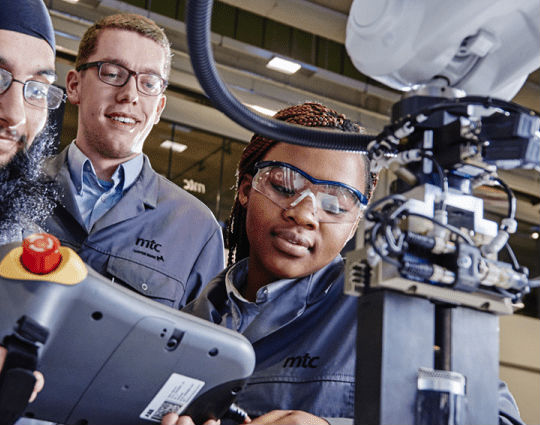
According to Government Europa it is currently estimated that within the next few years 186,000 engineering jobs need to be filled. With few engineers available to fill these roles where do we turn to and how do we manage this?
Many children are not introduced to engineering until they are much older and have normally gained an idea of where they want their career to go – odds are it isn’t engineering! Brexit is another factor. As soon as Brexit goes ahead it may be harder for the UK to import engineers to try and fill these vacancies and the skills gap could grow wider. It is imperative that we train our own engineers in the UK to fill these urgent vacancies.
As a manufacturer of miniature ballscrews with a full order book we struggle with productivity. There are certainly fewer skilled and experienced engineers available in the marketplace and as a rapidly growing business it can cause pressure in supply. There are also massive issues when filling graduate level jobs according to Randstad.co.uk.
So how do we overcome the current skills gap? Longer term we need to educate children from primary school age so that they are introduced STEM subjects much earlier. By showing children how vast and exciting the industry can be then it may be possible to reduce the skills gap with the next and upcoming generations.
It’s likely that engineers will be constantly in high demand so there is also a PR job around the potential benefits that can be gained within manufacturing. These are high value jobs and, Brexit aside, they provide job stability and continuous development in an ever-changing environment with the advancements being made in technology and materials.
We also need to reduce the stereotypes and misconceptions about engineering and manufacturing. When most people think of engineering, they often think of men in hard hats when in reality engineering is so much more sophisticated than this. Just under 13% of all engineers are women so education and PR is going to play a big part in redressing the balance.
There are so many types of engineers out there such as chemical, civil, software, mechanical and electrical just to name a few that many stereotypes and misconceptions need to be broken in order to encourage people into the industry and to reduce the skills gap.
One of the easiest ways to over come and reduce the skills gap is through the apprenticeship scheme. At PGM Reball we have an active recruitment policy of encouraging apprentices in to becoming ballscrew engineers. This gives an opportunity to develop appropriate skills for a career in engineering and manufacturing whilst acquiring first-hand knowledge and experience of ballscrew manufacturing and repair which will benefit them in the future. It really is a win:win – a great way to encourage people into the sector and helps to reduce the amount of job vacancies in the engineering sector.
So, there may be a big skills gap in the engineering sector as of current but that doesn’t mean that we cannot deal with it, if we simply educate people about working in the sector then it is possible that more people would start to consider a career in engineering. There are many ways in which the skills gap can be reduced and its not all doom and gloom when it comes to the engineering skills gap, there are many great opportunities on offer within the industry if only people are made aware of this.
If you are interested in a career in ballscrew manufacturing with PGM Reball please get in touch by sending your CV to office@pgmreball.co.uk.
